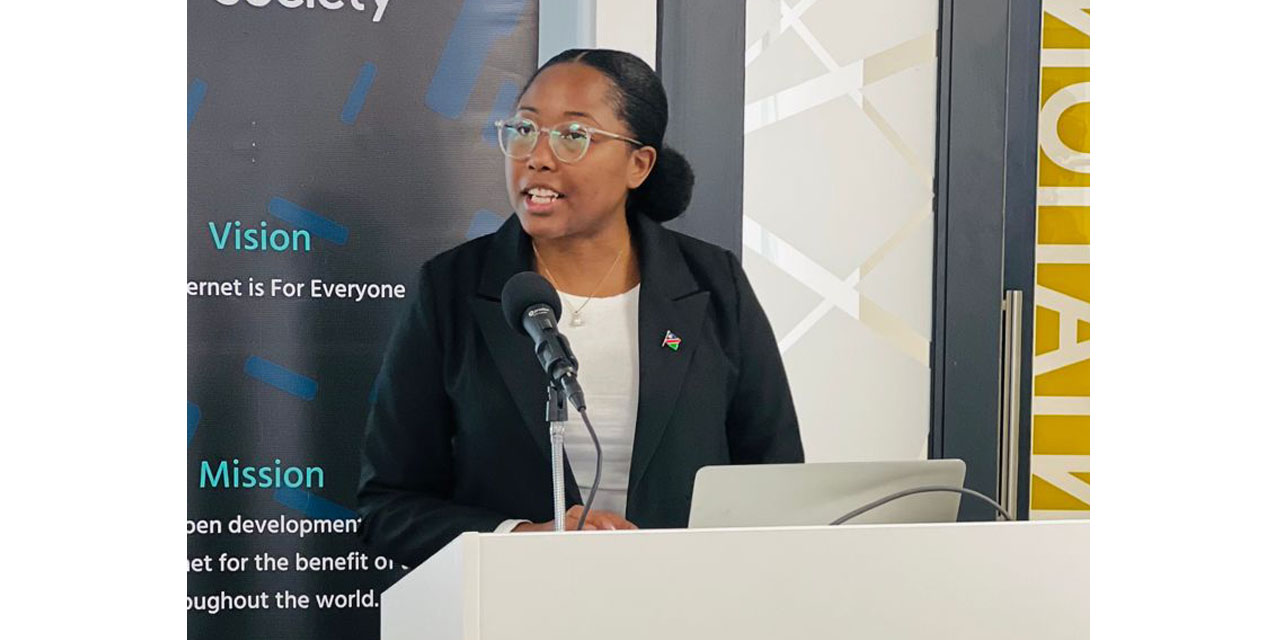Stefanus Nashama
While the mastery of technology continues to be one of the most modern development targets, Namibia has become the first country in Southern Africa to conduct a national assessment of the Internet Universality Indicators.
The Deputy Minister of Information and Communication Technology, Emma Theofelus, yesterday officially launched the Namibia National Internet Universality Indicators (ROAM-X) Assessment at the Namibia University of Science and Technology HTTP Centre in Windhoek.
The ROAM-X assessment aims to develop policy recommendations and practical initiatives that will enable Namibia to improve the national Internet ecosystem as advanced ICTs evolve, among other things.
This assessment framework is considered the new Internet instrument to take scientific stock of the technological situation in a given country and use the findings to recommend specific changes to address problems and harness opportunities.
Theofelus said Namibia has embraced this opportunity to allow for the voluntary assessment that will provide evidence as to where precisely the national policy and development of internet systems are, particularly considering the human rights aspects, openness, accessibility, and the role and governance of the multistakeholder.
The ROAM-X is developed by UNESCO and has been adopted by member nations as an assessment tool for internet development at a multi-level.
Theofelus explained that the assessment will present a comprehensive and substantive understanding of the national Internet environment and policies and assess Namibia’s policy alignment with UNESCO’s ROAM principles and their contribution to sustainable development.
She further added that the assessment will develop policy recommendations and practical initiatives that will enable Namibia to improve its Internet ecosystem particularly as frontier ICTs evolve.
“The launch of ROAM-X serves to inform other UN member nations that Namibia found the Internet Universality Assessment Framework as fit for purpose and embrace it as sharing good practices by voluntarily assessing the internet in the country across various cross-cutting issues at a national level,” the Deputy Minister stated.
Theofelus said that Namibia has put many technology policies in place, and various others such as the National Digital Strategy, Cybercrime, and Data protection laws are in draft format.
“As a country, we know we have been making significant steps regarding the policy development of technology and in doing that we are all guided by numerous international instruments,” she said.
According to the deputy Minister, 51 percent of the Namibian population has internet access, adding that the Ministry with other partners is rolling out a national digital literacy program aimed at empowering those without means with some digital skills.
She said she believes that there is more that Namibia can do to arrest the situation at policy level.
“By the looks of things, the ROAM-X framework will help us to locate the policy and design to eliminate blind spots and help us in our next steps,” she stressed.
She concluded by saying that ROAM-X will produce a concrete analysis of the Internet Universality concept at the country level.




